A parade of impoverished, repressive socialist regimes lined up on Wednesday and Thursday to condemn Speaker of the House Nancy Pelosi (D-CA) for visiting Taiwan — an attempt to court Chinese investment and political support as their economies sink and popular discontent reaches a fever pitch.
The government of Sri Lanka — whose economy has “collapsed” entirely, according to its current president — joined the communist regimes of Cuba and North Korea and the Taliban jihadist organization in affirming a commitment to China’s “One-China policy” and branding Pelosi’s visit to Taiwan a “provocation.” The Chinese Communist Party falsely considers Taiwan — a sovereign nation enjoying democratic rule and a prosperous, capitalist economy — a “province” of China and insists that any country wishing to maintain diplomatic relations with China not recognize Taiwan’s status as a country.
America does not recognize Taiwan as a country for this reason, despite Taipei’s desire to maintain friendly relations with Washington and China’s litany of economic and political hostilities against America.
Pelosi and a small congressional delegation landed in Taipei Tuesday night after weeks of speculation that the speaker may visit the island nation, and in defiance of violent threats from Beijing. The Chinese Foreign Ministry, dictator Xi Jinping, and the regime’s top propagandists repeatedly warned that America would “burn” if Pelosi visited Taiwan. Hu Xijin, a commentator for the state-run Global Times newspaper, suggested Beijing arrest Pelosi if she landed in Taiwan or attempt to shoot down her plane prior to her arrival.
Pelosi completed her visit to Taiwan without incident on Wednesday. Asked about China’s objections, Pelosi told reporters, “it doesn’t really matter.”
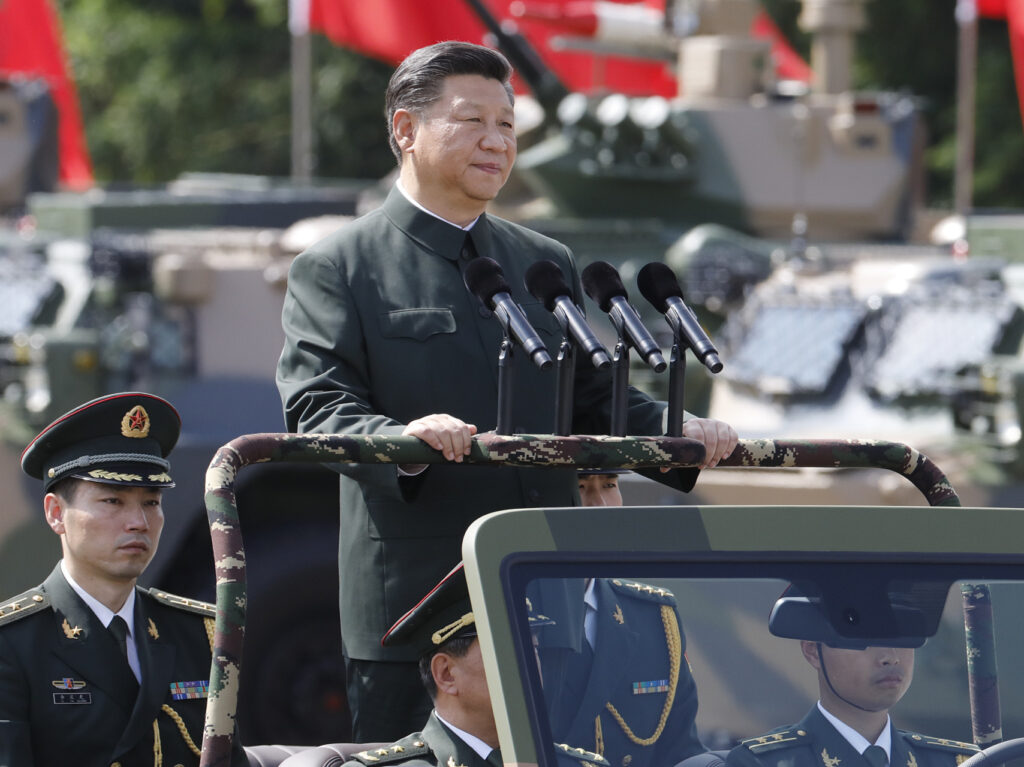
Xi Jinping, China’s president, rides in a vehicle as he reviews People’s Liberation Army (PLA) troops in Hong Kong, China, on Friday, June 30, 2017. (Anthony Kwan/Bloomberg via Getty Images)
The Chinese government has nonetheless continued to protest the visit. Following Pelosi’s departure to South Korea, Beijing counted on the support of several autocratic, decaying regimes reliant on the Communist Party’s largess for their continued stay in power.
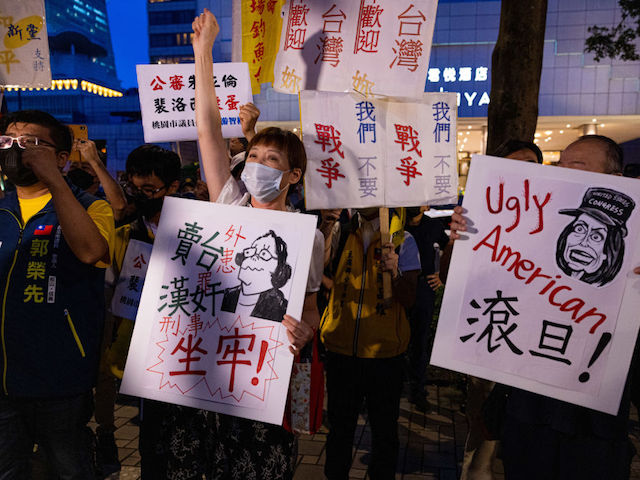
Demonstrators take part in a protest against Speaker of the House Nancy Pelosi’s (D-CA) visit on August 02, 2022 in Taipei, Taiwan. (Annabelle Chih/Getty Images)
The president of the Democratic Socialist Republic of Sri Lanka, Ranil Wickremesinghe, announced in a public statement on Thursday that he had met with the Chinese ambassador to Colombo to and “reiterated Sri Lanka’s firm commitment to the one-China policy” — the denial of Taiwanese sovereignty. While Wickremesinghe did not name Pelosi, he chided unspecified “countries” for “provocations which further escalate the current global tensions,” a clear reference to her visit to Taiwan and the United States generally.
“President Wickremesinghe’s statement came after US House of Representatives Speaker Nancy Pelosi’s recent visit to Taiwan on Tuesday, which she said demonstrates the solidarity of United States with the Chinese-claimed self-ruled island,” the Sri Lankan outlet Ada Derana observed.
Sri Lanka is facing the worst economic crisis in its history, largely due to lavish expenditures by its socialist government that included signing deals for predatory loans with China. Sri Lanka’s participation in China’s “Belt and Road Initiative” (BRI), a debt-trap program that targets poor countries, resulted in the country losing control of its Hambantota port to China for as much as nearly 200 years after it failed to pay its debts in 2017. Waves of protests beginning in March – which the government ran out of money to buy food and fuel – resulted in the removal of the ruling Rajapaksa dynasty, but the nation’s parliament chose longtime establishment figure Wickremesinghe as president last month. Like many other Sri Lankan officials, protesters burned down Wickremesinghe’s home in riots in July.
Under Wickremesinghe, Sri Lanka is seeking to fund its socialist government through even more predatory deals with China.
The Taliban, another regime seeking Chinese investment to ensure its stay in power, also condemned Pelosi’s visit to Taiwan, more explicitly condemning America, its longtime enemy, for allegedly violating China’s sovereignty by allowing Pelosi to visit another country.

Taliban fighters guard at the site of an explosion in Kabul, Afghanistan, Saturday, June 18, 2022. (AP Photo/Ebrahim Noroozi)
“We urge all countries to refrain from decisions that are considered a violation of national sovereignty of states & lay the groundwork for provocative actions,” Abdul Qahar Balkhi, a Taliban “foreign ministry” spokesman, said on Wednesday.
China has invested millions in the success of the Taliban terrorist organization, which has expressed interest in the BRI and Chinese economic colonialism in Afghanistan. In turn, the Communist Party has recognized the terrorists as the “interim” government of Afghanistan and urged the world, and especially America, to give the group money.
Communist Cuba, a BRI partner and longtime ally of China’s, was faster to condemn Pelosi than the other nations, issuing a statement on Tuesday. A failed state for nearly the entirety of the 63 years of its communist rule, Cuba is now facing routine anti-communist protests, regular blackouts, and major shortages in basic goods thanks to the Castro regime’s plundering of the economy and human rights abuses. Like Sri Lanka and the Taliban’s Afghanistan, China is one of the few states willing to invest in Cuba.
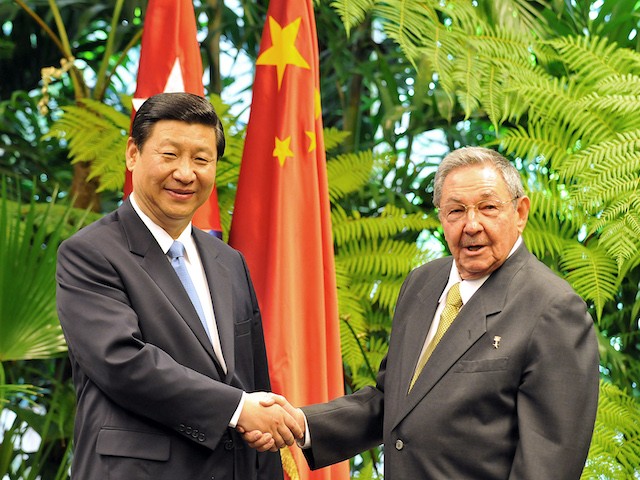
China’s Vice-President Xi Jinping (L) shakes hands with Cuba’s Raul Castro (R), on June 5, 2011 at Revolution Palace in Havana. (ALEJANDRO ERNESTO/AFP via Getty Images)
The Cuban Foreign Relations Ministry, commonly referred to as Minrex, expressed “its firm rejection of actions intended to hurt the territorial integrity and sovereignty of the People’s Republic of China,” and condemned “interference in its internal affairs” on Tuesday. An enraged statement from the communist agency claimed the Castro regime was concerned “regarding the rise in tensions and aggravation of the situation relating to Taiwan as a direct result of the aggressive policies and elevated military presence of the United States and its allies in the Taiwan Strait.”
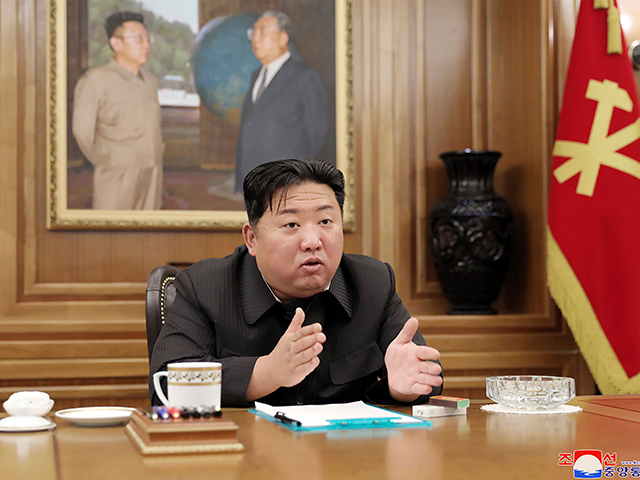
In this photo provided by the North Korean government, North Korean leader Kim Jong-un attends a meeting of the ruling Workers’ Party’s Central Committee in Pyongyang, North Korea Sunday, June 12, 2022. (Korean Central News Agency/Korea News Service via AP)
A column in Granma, the official newspaper of the Cuban Communist Party, attacked Pelosi personally as “more than irresponsible” for visiting the country.
North Korea — a communist regime that depends on China for nearly the entirety of its economic activity — vowed in a statement from its Foreign Ministry on Tuesday that America would “suffer” because of Pelosi’s travels.
“We vehemently denounce any external force’s interference in the issue of Taiwan, and fully support the Chinese government’s just stand to resolutely defend the sovereignty of the country and territorial integrity,” the North Korean Foreign Ministry denounced. “The U.S. will certainly suffer a setback in its attempt to hinder the growth and development of China as well as its accomplishment of the cause of unification.”
“The current situation clearly shows that the impudent interference of the U.S. in internal affairs of other countries and its intentional political and military provocations are, indeed, the root cause disturbing peace and security in the region,” it affirmed.
China is North Korea’s closest ally and co-belligerent in the Korean War, which technically continues in vigor despite the end of active hostilities in 1953. Reports from as recently as last week suggest that China has been skirting United Nations sanctions to do business with North Korea, keeping the communist Kim regime afloat.
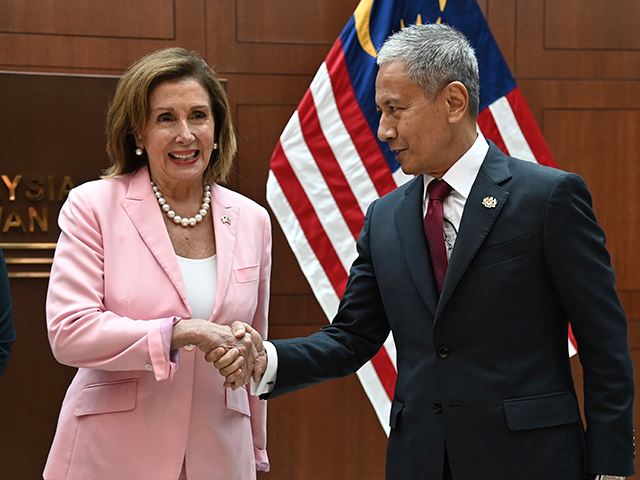
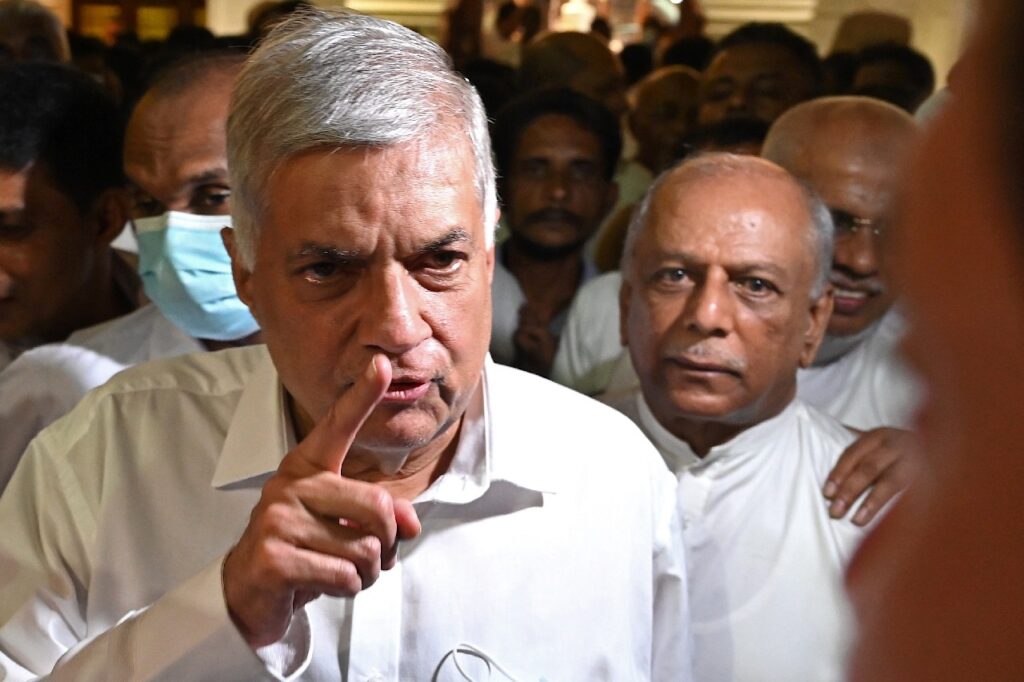
COMMENTS
Please let us know if you're having issues with commenting.